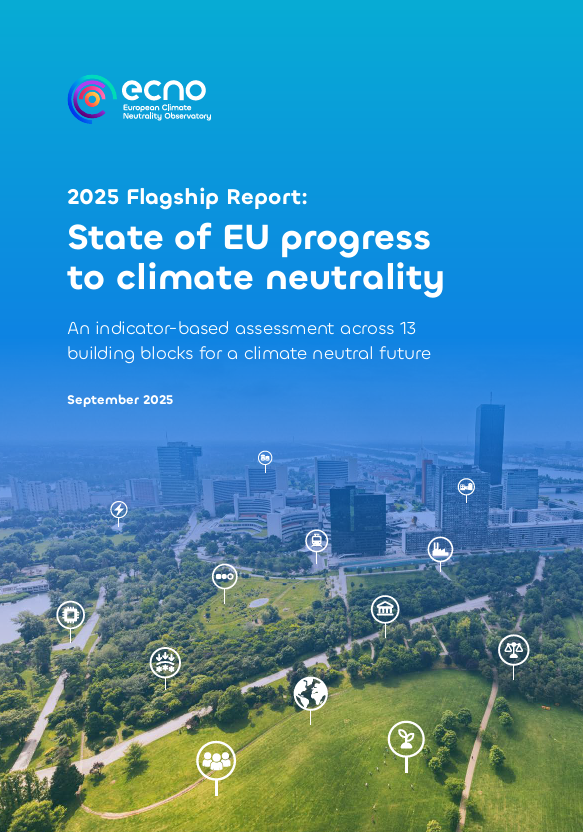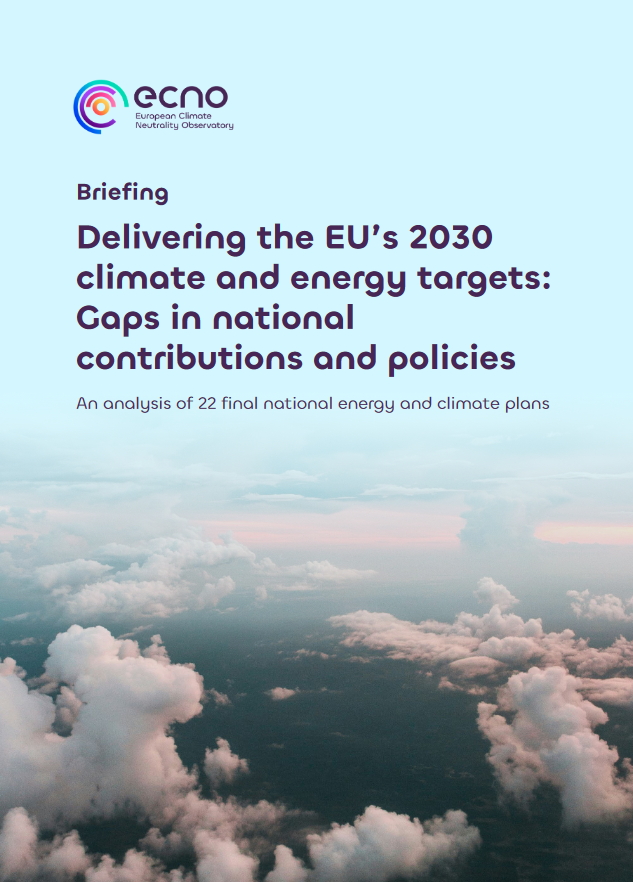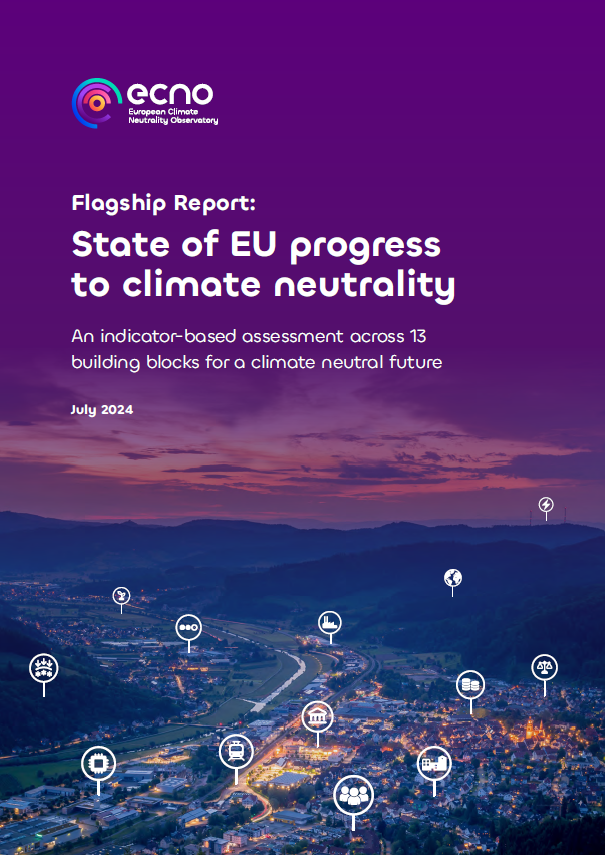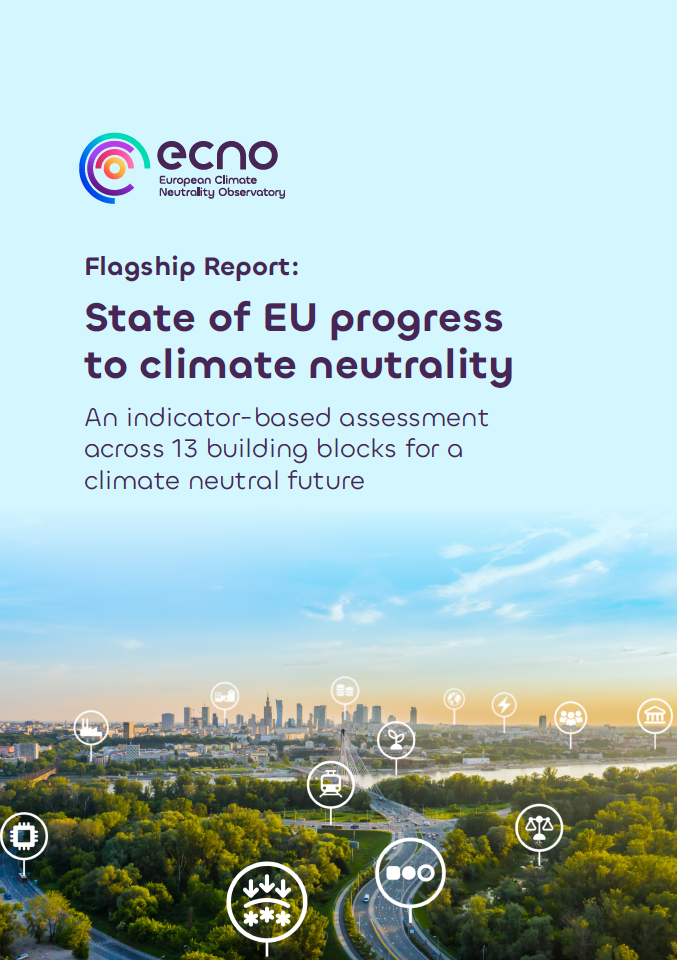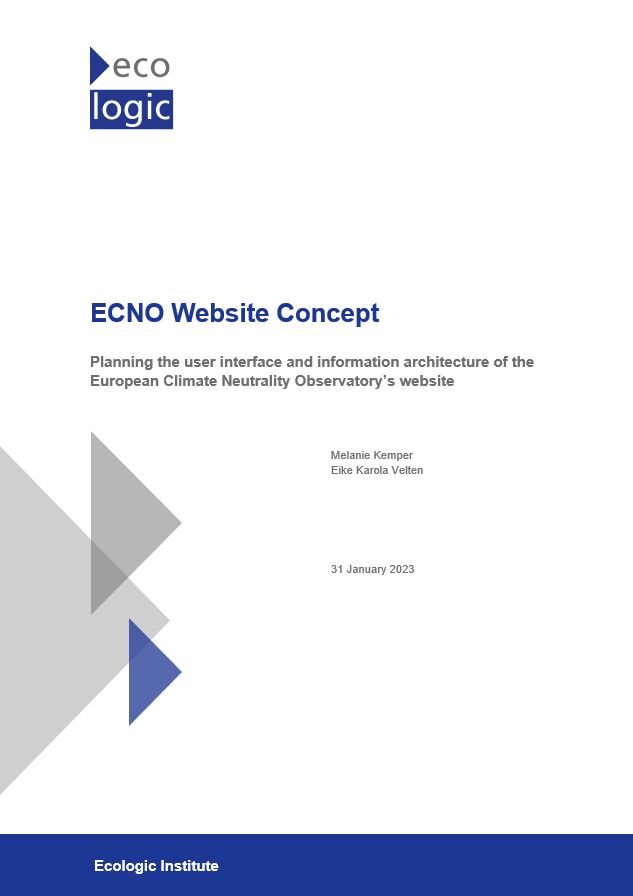Delivering 2030 Climate Targets
A snapshot of the transparency and policy information gaps of Member States' NECPs
- Publication
- Citation
Lalieu, Simon et al. 2025: Delivering 2030 climate targets. A snapshot of the transparency and policy information gaps of Member States' NECPs. Report of the project European Climate Neutrality Observatory (ECNO).
This ECNO report assesses transparency and policy information in the final National Energy and Climate Plans (NECPs) of four EU countries: France, Ireland, Italy, and Sweden. The report evaluates whether these plans provide a sufficient blueprint for achieving national climate targets.
Why NECPs matter
A climate-neutral economy will not emerge by chance. Pathways consistent with limiting warming to well below two degrees demand decisive action in the second half of this decade and beyond. Consistent and transparent planning, guided by clear intermediate targets, is essential to steer policy-making toward this goal.
NECPs, mandated under EU law and currently undergoing their second revision, offer Member States a critical opportunity to define their next steps toward a net zero economy. These plans serve as the standard instrument for transparently communicating concrete policies, measures, and key indicators used to guide and monitor the transition. To be effective, they must be both specific and comprehensive, enabling stakeholders to clearly understand the policy direction shaping investment, supply chains, and consumption patterns across society.
Scope and purpose of this report
This report examines a sample of NECPs for potential gaps in two critical areas:
- transparency regarding key indicators required by EU law, and
- the detail and expected impact of the policies and measures outlined.
The analysis focuses on the final NECPs of four EU Member States: France, Ireland, Italy, and Sweden. These countries were selected because their final plans were available at the time of review and together represent a diverse cross-section of EU Member States by size and regional distribution.
The assessment offers valuable insights and recommendations for all Member States on how to strengthen national plans, as well as guidance to the European Commission for refining the NECP framework and improving future planning requirements.
Key Findings
- There are significant transparency and policy information gaps in all plans. Without addressing these, Member States risk failing to meet their 2030 climate targets. Strengthening the NECPs will be essential for ensuring a credible and effective transition to a net zero economy.
- Policy information gaps threaten emissions reduction goals – the NECPs set ambitious targets without outlining clear policies and measures to support them.
- There is a high level of variability across countries:
France and Ireland have the most detailed NECPs but still require improvement.
Italy and Sweden show significant deficiencies in both transparency and policy commitments. - Sectoral weaknesses: The transport, industry, and buildings sectors exhibit the largest information and policy information gaps.




